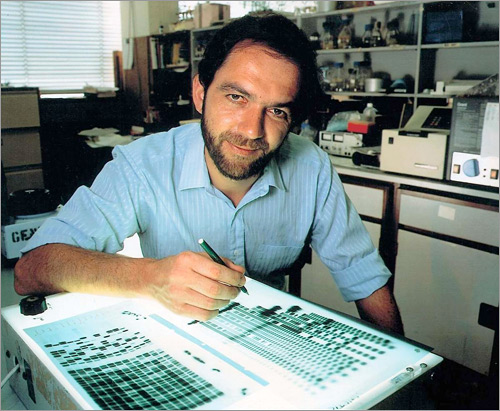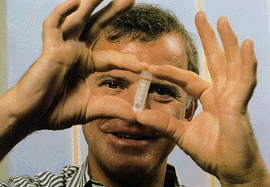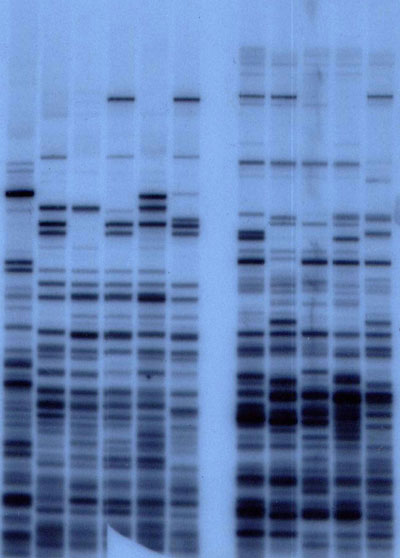Innovators: Sir Alec Jeffreys, the inventor of genetic engineering, was born in 1950 in Oxfordshire, England. He graduated with a PhD from the University of Oxford and eventually moved on to the University of Leicester in 1977. (wikipedia.org) In his lab at Leicester, he studied an X-ray picture of a DNA experiment. It showed similarities and differences between members of one of his technician’s family. He used this discovery to invent genetic fingerprinting, which uses the unique variations in a person’s genetic code to identify people. This technology can also be used in wildlife population genetics studies. Genetic fingerprinting was commercialized in 1987, but before then, the only fingerprinting facility was located in his laboratory. (wikipedia.org) Jeffreys and his team were among the first to spot the small variations in genes. Though technology was limited, they believed that there were lots of variable sections of DNA, especially where the same sequence was repeated many times. These are called minisatellites. (brighthub.com) Minisatellites consist of repetitive sequences of 10-100 base pairs. Usually these sites have a lot of G-C pairings. They are the most unstable regions in the human genome, as they are prone to breakage and other mutations. (wikipedia.org) Minisatellites are different in everyone, due to their high levels of polymorphism. Since each person's is unique, they are very useful in identifying people. Since minisatellites are stably inherited and segregated in a Mendelian fashion, they are aluable in parentage disputes. (cqu.edu) Kary Mullis invented the PCR testing we use today in 1983. Kary Banks Mullis is a Nobel Prize winning American biochemist, author, and lecturer. In recognition of his improvement of the polymerase chain reaction (PCR) technique, he shared the 1993 Nobel Prize in Chemistry with Michael Smith and earned the Japan Prize in the same year. (wikipedia.org) Also in 1994 he released a book regarding his discovery called "The Polymerase Chain Reaction". According to Mullis, he made this fantastic discovery while driving with his girlfriend on a late spring night. He concluded his discovery with a demonstration on December 16, 1983. Impact: Many courts today accept DNA tests as proof of paternity, and they have become a large part of determining the "winner" of custody battles. They are useful when a woman claims a man is the father (or claims that he isn't.) Custody is important because it determines how much money and support the child is legally required to recieve. Testing is also important because it can free a man that has been paying child support for a child that he didn't know wasn't his. While paternity tests have many good impacts, they also have negatives. For example, single mothers may be hurt when their child wants to know who his/her biological father is; it may make them feel that they haven't supported the child well enough on their own. Also, many people believe that finding their true parentage will make their lives great, while in reality, determining who your father is doesn't mean that he will want to know you, want to be a part of your life, or even remember you. Some imagine their "perfect father" and are disappointed when they discover who their father is. (easydna.com) Also, when a child is raised by a man who he/she thinks is their father, finding out that that man isn't their father can be traumatizing, especially when that man also believed he was the biological father. (easydna.com) Paternity tests are becoming more and more common, and are used to screen for genetic disease and to find suitable organ donors. They are also common in police investigations. With tests being so widely used, their negative effects, such as those above, can come out more often. (dailynewscentral.com)
|
 Sir Alec Jeffreys, PhD, the "grandfather of genetics."  Nobel Prize winner, Kary Mullis  An example of a DNA fingerprint. |